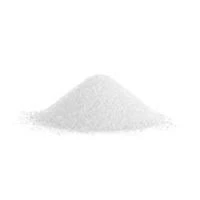
Exploring the Impact of 412 Food Additive on Health and Safety Standards
The Role of Food Additives A Deep Dive into 412 Food Additive
Food additives play a significant role in the modern food industry, enhancing flavors, improving appearance, preserving freshness, and maintaining safety. Among these additives, the designation 412 refers specifically to a type of food thickener known as guar gum. This article aims to explore the properties, uses, safety, and controversies surrounding guar gum and other additives to highlight their importance in our diets.
What is Guar Gum (412)?
Guar gum is derived from the seeds of the guar plant, an annual legume primarily grown in India and Pakistan. The seeds are processed to create a fine powder that is utilized as a thickening agent in a variety of food products. As a natural polysaccharide, guar gum has the unique ability to absorb water, swelling to form a gel-like consistency.
Uses of Guar Gum
Guar gum is commonly found in a multitude of food items, including sauces, gravies, dairy products, and baked goods. Its primary function in these products is to improve texture and stability, ensuring that the final product retains its intended form when frozen or otherwise manipulated. Moreover, guar gum is often used in gluten-free products to mimic the elasticity and viscosity typically provided by gluten in wheat flour.
Beyond its use as a food additive, guar gum has applications in several non-food industries. It is used in cosmetics, pharmaceuticals, and even oil drilling due to its thickening properties. In the culinary world, it is beloved by chefs aiming for the perfect balance of texture and flavor in their dishes.
Safety and Regulations
412 food additive

When considering food additives, safety is a paramount concern. Regulatory authorities such as the U.S. Food and Drug Administration (FDA), European Food Safety Authority (EFSA), and others have evaluated the safety of guar gum. Generally recognized as safe (GRAS) when consumed in appropriate amounts, guar gum has been extensively studied. According to these evaluations, typical dietary intake levels present no significant risk to human health.
However, excessive consumption of guar gum can lead to gastrointestinal issues, including bloating or diarrhea, particularly in individuals with sensitive digestive systems. Hence, it is crucial for consumers to be mindful of the amounts they ingest of any food additive, including guar gum.
Controversies and Misunderstandings
Despite its classified safety, guar gum—and additives in general—are often subjects of public scrutiny. Some argue that the use of additives detracts from the naturalness of food, while others raise concerns regarding potential long-term health effects. Misinformation can easily propagate concerning the use of food additives, leading to a general mistrust among consumers.
However, the reality is that many food additives, including guar gum, serve vital roles in food preservation, enhancing shelf life, which is critical in reducing food waste. Furthermore, advancements in food science continue to improve the safety and efficacy of these additives, ensuring that they meet consumer demands for both quality and health.
Conclusion
Food additives like guar gum (412) are invaluable components of the food industry, providing essential functionalities that enhance our dietary experience. As consumers, it's crucial to remain educated about the role of additives in food production and to understand that, when used correctly, they contribute positively to our diets. By fostering an informed viewpoint, we can appreciate the science behind our food while maintaining a balanced perspective on the continuing evolution of food technology. Embracing knowledge about food additives will empower us to make better choices, supporting innovations that aim to improve both the quality and safety of our food supply.
-
Buy High-Quality Trichloroisocyanuric Acid for Sale | TCCA 90% SupplierNewsAug.30,2025
-
Pure Sodium Dichloroisocyanurate Dihydrate | Powerful DisinfectantNewsAug.29,2025
-
Industrial Chemicals: Quality & Purity for Every IndustryNewsAug.28,2025
-
Nitrile Rubber Honoring Strict Production StandardsNewsAug.22,2025
-
Aspartame Ingredients Honoring Food Safety ValuesNewsAug.22,2025
-
Fertilizer for Balanced Plant NutritionNewsAug.22,2025
-
Cyanide Gold Processing with High Purity AdditivesNewsAug.22,2025
Hebei Tenger Chemical Technology Co., Ltd. focuses on the chemical industry and is committed to the export service of chemical raw materials.
-

view more DiethanolisopropanolamineIn the ever-growing field of chemical solutions, diethanolisopropanolamine (DEIPA) stands out as a versatile and important compound. Due to its unique chemical structure and properties, DEIPA is of interest to various industries including construction, personal care, and agriculture. -

view more TriisopropanolamineTriisopropanolamine (TIPA) alkanol amine substance, is a kind of alcohol amine compound with amino and alcohol hydroxyl, and because of its molecules contains both amino and hydroxyl. -

view more Tetramethyl Thiuram DisulfideTetramethyl thiuram disulfide, also known as TMTD, is a white to light-yellow powder with a distinct sulfur-like odor. It is soluble in organic solvents such as benzene, acetone, and ethyl acetate, making it highly versatile for use in different formulations. TMTD is known for its excellent vulcanization acceleration properties, which makes it a key ingredient in the production of rubber products. Additionally, it acts as an effective fungicide and bactericide, making it valuable in agricultural applications. Its high purity and stability ensure consistent performance, making it a preferred choice for manufacturers across various industries.





